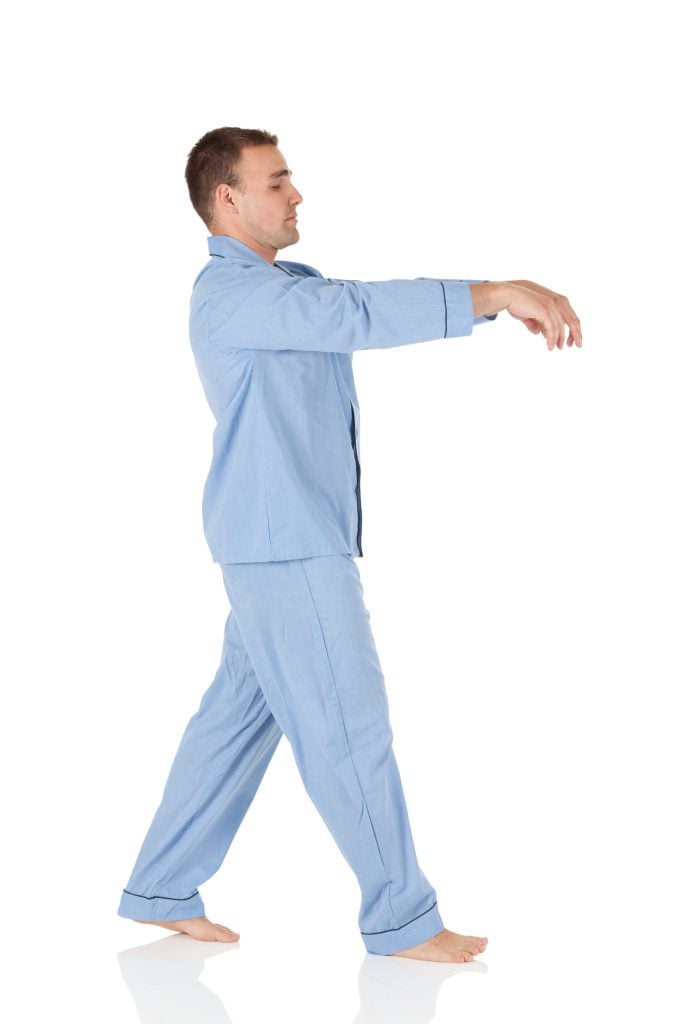
We have seen people who sleep walk in movies but how many of us have actually seen it in person? Probably not many of us have. Sleepwalking, or as it is known in medical terms, somnambulism, actually does exist. It is more common in children, but adults can experience it as well.
Most people won’t remember when they were sleepwalking. This is because sleep walking typically occurs during a deep stage of sleep.
A few of the causes of sleep walking are:
- Stress
- Fever
- Change in sleep schedule
- Lack of sleep
- Substance abuse
- Taking certain medications
- Gastroesophageal reflux disease
Medical conditions that can lead to sleepwalking are:
- Nighttime seizures
- Migraines
- Heartburn
- Heart rhythm problems
- Restless leg syndrome
Diagnosing sleepwalking starts with doing a physical exam which may be accompanied by a sleep study in a specialized lab. Sensors will monitor breathing patterns oxygen levels, brain waves, eye and leg movement.
Treating sleepwalking is based upon the cause and may include antidepressants, as well as adjusting prescribed medications that the patient is taking already. People who sleep walk should avoid drinking alcohol, be in a stress free environment and get a good night’s sleep.
If someone you know tends to walk in their sleep it is a common misconception that they shouldn’t be awakened. It is important to make their environment safe so that they don’t hurt themselves and doors and windows should be locked.
If someone you know tends to walk in their sleep it is important to make the environment safe so that they don’t hurt themselves. They should also be as stress free as possible, have a relaxing routine prior to going to sleep, and they should not drink alcohol.
To schedule an appointment with a sleep disorder specialist at Jamaica Hospital Medical Center, please call 718-206-7001.
All content of this newsletter is intended for general information purposes only and is not intended or implied to be a substitute for professional medical advice, diagnosis or treatment. Please consult a medical professional before adopting any of the suggestions on this page. You must never disregard professional medical advice or delay seeking medical treatment based upon any content of this newsletter. PROMPTLY CONSULT YOUR PHYSICIAN OR CALL 911 IF YOU BELIEVE YOU HAVE A MEDICAL EMERGENCY.
